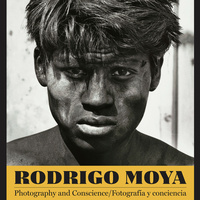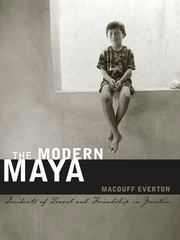Recipes for Survival
In 1983, when acclaimed Brazilian artist Maria Thereza Alves was an art student at Cooper Union in the United States, she returned to her native country to document the backlands of Brazil, where her family is from. Working with the local people in a collaborative process that has become the hallmark of her mature work, Alves photographed their daily lives and interviewed them to gather the facts that they wanted the world to know about them. Unlike documentation created by outsiders, which tends to objectify Brazil’s indigenous and rural people, Alves’s work presents her subjects as active agents who are critically engaged with history.
Recipes for Survival opens with evocative, caption-less black-and-white photographs, most of them portraits that compel viewers to acknowledge the humanity of people without reducing them to types or labels. Following the images are texts in which the villagers matter-of-factly describe the grinding poverty and despair that is their everyday life—incessant labor for paltry wages, relations between men and women that often devolve into abuse, and the hopelessness of being always at the mercy of uncontrollable outside forces, from crop-destroying weather to exploitative employers and government officials. Though not overtly political, the book powerfully reveals how the Brazilian state shapes the lives of its most vulnerable citizens. Giving a voice to those who have been silenced, Recipes for Survival is, in Alves’s words, “about we who are the non-history of Brazil.”
[Recipes for Survival intends] to retrieve the testimony of people missing from history…Maria Thereza Alves shows the persistence of the effects of colonialism and the survival of the conditions against which the 'tri-continental front' fought. But if this project dates back to the 1980s, the conditions of existence described are still very visible.
[Recipes for Survival] has been compared to the classic Let Us Now Praise Famous Men by Walker Evans and James Agee. The comparison is apt, although in this case Alves palys the roles of both photographer and writer. The book opens with 72 images spread over 137 pages that would make Evans proud. They are followed by 106 pages containing prose that is as insightful as Agee's, if a lot more restrained...All together, it adds up to a detailed sociological study.
Recipes for Survival is the outcome of deep engagement and participation; it deploys photography, but it does so in tandem with an attentive listening and in conversation with its subjects...it represents a seeing and listening beyond surface appearances and is a unique specular engagement with the conditions of other lives...Recipes for Survival is an early example of the commitment evident in Alves’s works, and maybe one of its sources, to creating a space for the hearing and recognition of the indigenous voices and knowledges subsumed under the powerful noises of the modern neoliberal capitalist world and the longstanding and brutally damaging aftermaths of colonising processes.
Was there ever a book like this that says so much about the world in so few words? It is almost frightening, this shock treatment. . . . Dostoyevsky comes to mind—the grain and the pathos—as does Primo Levi’s account of Auschwitz; James Agee and Walker Evans’s classic, Let Us Now Praise Famous Men; and John Berger’s work with photographer Jean Mohr. . . . But above all, it is the integrity created by the flicker of life in the almighty darkness where art and documentary coalesce. For it is breathtaking, the way this book works . . .
These photographs are extraordinary. They trace a direct connection with Alves’s subjects that is rare and impossible to fake. This is very different from a lot of documentary work being done today, and I think it will be a revelation to many.
This is a very powerful and beautiful depiction of life under the weight of poverty and histories of slavery, colonialism, and exploitation capitalism in Brazil. It is profoundly moving.
Maria Thereza Alves is a Brazilian-born artist descended from the country’s indigenous, African, and European peoples. She is best known for her award-winning work Seeds of Change (2004–2018), which links ecology and colonial history. One of the founders of Brazil’s Green Party in São Paulo, Alves received the 2016–2018 Vera List Center Prize for Art and Politics, awarded to artists who take great risks to advance social justice in profound and visionary ways.













